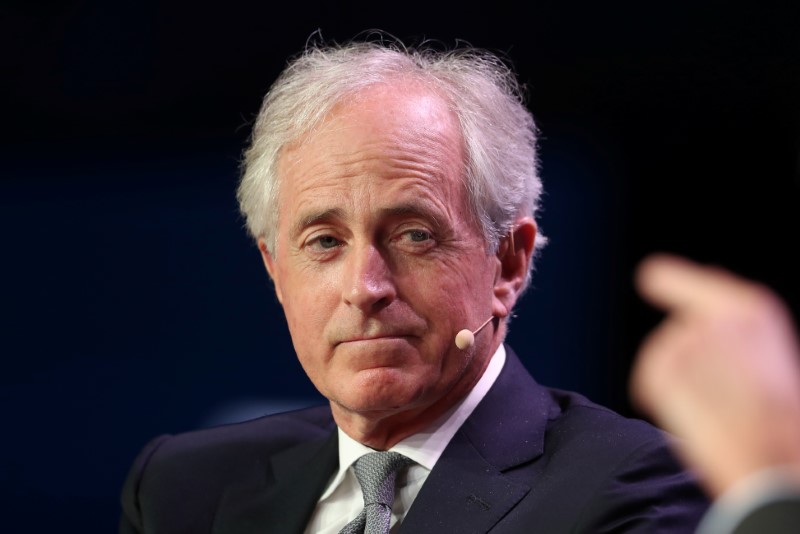By Patricia Zengerle
WASHINGTON (Reuters) - Republican and Democratic U.S. senators blasted Trump administration trade policy on Thursday and vowed to press ahead with legislation to give Congress a say in decisions to impose tariffs on national security grounds.
Prompting criticism from many of his fellow Republicans and business groups as well as Democrats, Trump has imposed levies on imports of steel and aluminum from close allies including Canada, Mexico and Europe and is considering some on automobiles and auto parts.
"I'm very concerned about the president's trade policies and I think we all should be," Senator Bob Corker, chairman of the Senate Foreign Relations Committee, said at a hearing on tariff policy.
"These actions are hurting our business and farm communities all around the country. They're damaging our international relationships."
Joshua Bolten, chief executive of the non-partisan Business Roundtable, a grouping of corporate CEOs, told the committee that business leaders worry the economic gains from Trump-backed tax reductions and cuts in regulation would be offset by trade policies that will raise prices and cost American jobs.
"Our overriding concern now is that those gains will be entirely reversed by major missteps in U.S. trade policy," Bolten said.
The administration also is in a trade dispute with China, with Beijing hitting back against Trump's threats to impose tariffs on hundreds of millions of dollars of Chinese goods.
Several senators said Trump was making it difficult to work with allies to counter China.
"It's hard to partner up with countries to take on China and isolate China when we're in a trade war with countries we seek to partner up with," Senator Marco Rubio said.
Lawmakers blasted witness Manisha Singh, assistant secretary of state for business and economic affairs, for what they say is the administration's failure to spell out a trade strategy and what they called unwarranted attacks on U.S. allies.
Corker and other senators introduced a bipartisan bill last month that would force Trump to obtain Congress' approval before imposing tariffs on national security grounds.
But Republican congressional leaders - who control majorities in the Senate and House of Representatives and support most Trump policies - have not allowed a binding vote on the measure, settling instead only for a symbolic vote Wednesday.
Corker said he would push for a binding vote "in the near future."

House Speaker Paul Ryan cast doubt on Congress acting, telling reporters Thursday it would be better to work with the administration to change the policy.